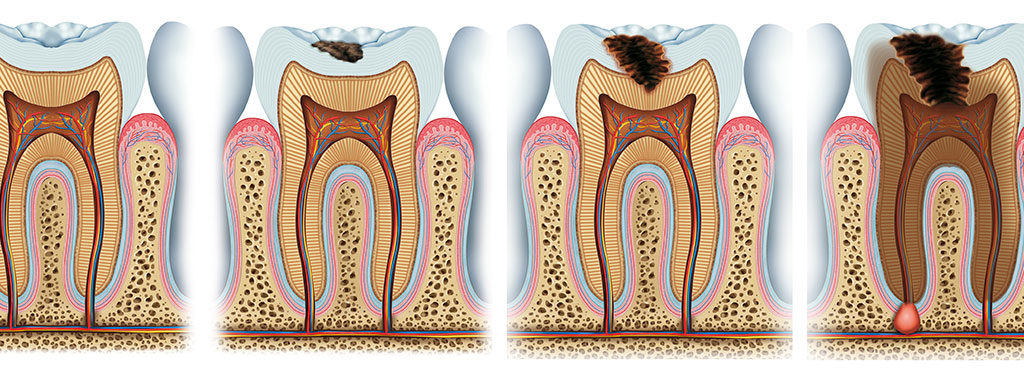
Root Canal Treatments
No artificial tooth is as healthy and durable as a natural tooth. For this reason, taking good care of your teeth should be a priority. When a tooth does start to cause problems, root canal therapy might become necessary. If the living tissue or pulp (the package of veins and nerves) in the root of the tooth goes dead or begins to rot, root canal therapy will be required. Before advances in dentistry, damaged teeth were immediately extracted as they could not be saved. Thanks to root canal therapy, however, the interior of damaged teeth can be cleaned and refilled, allowing patients to continue using their natural teeth. At the same time, such therapy prevents the damaged tooth from affecting adjacent teeth.
Why Root Canal Therapy?
Root canal therapy (endodontics) is a method of treatment that ensures damaged teeth do not need to be extracted. If the pulp inside the tooth is damaged to an extreme degree, the tooth and nerve die. The loss of such nerve endings means patients do not feel any pain, but if the dead pulp is not removed from the tooth in a timely fashion, dentists will be forced to extract the tooth, while the damage will also spread to the adjacent tissue and teeth.
What Happens if Root Canal Therapy is not Undertaken?
Tooth decay kills the internal pulp, meaning that it cannot cure itself as necessary. In such a case, the tooth begins to die, while the infection starts to spread to the whole tooth. If root canal therapy is not conducted, the infection will reach the root apex and begin to damage the tissue. The progression of the infection results in abscess, intense pain and swelling, requiring treatment with antibiotics to reduce the swelling. After the reduction in swelling, dental experts can apply root canal therapy if the tooth is not in a serious enough condition to warrant extraction.
Does Root Canal Therapy Hurt?
Contrary to popular belief, root canal therapy is less painful than extraction. If your tooth is extracted, you will require a prosthesis for space or will need to wait until it can be covered. In the latter case, however, the other teeth will begin to slide towards the empty area, causing crookedness in the mouth and an unpleasant appearance. However, if your tooth must be extracted, it can be replaced with an artificial tooth using advanced technology, such as an implant
How Long Can a Tooth Last after Root Canal Therapy?
If the tooth does not suffer from any re-infection and measures are taken to prevent decay through good dental care, the filling can last for the rest of a patient’s life. Regular dental checks can help diagnose infections at an early stage.

Girne Cad. No: 9/A Karşıyaka / İzmir
0 (232) 463 66 32
0 (530) 775 11 87
Working Hours
Mon - Fri: 9:00 a.m. - 8:00 p.m.
Appointment Request
info@kordondent.com.tr
